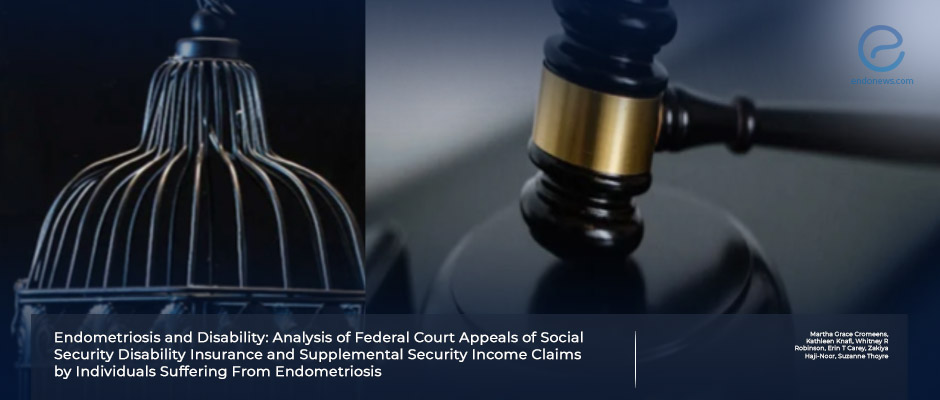Misconceptions About Endometriosis Affect Insurrance Claims Too
Dec 4, 2024
Women with endometriosis claiming SSDI and SSI are at a disadvantage, the study found.
Key Points
Highlights:
- Women with endometriosis who claim SSDI and/or SSI face challenges like evidentiary requirements, symptom variability, and court misconceptions.
Importance:
- These findings can help guide future interventions by public health officials, clinical providers, legal teams, and policymakers to ensure the system is more equitable for women with endometriosis.
Key results:
- According to the courts:
- subjective reports of symptoms were insufficient evidence of impairment
- positive responses to treatments were indicative of cures and were sufficient to prevent claimants from demonstrating the necessary continuous 12 months of impairment.
- claimants should use contraceptives or hysterectomy
Limitations:
- The rationale and conclusion of published court decisions varied and included missing or incomplete data.
- SSI and SSDI claims usually include other impairments, which made it difficult to identify issues unique to endometriosis.
- The decisions of appeals courts represent a small proportion of SSDI/SSI claims.
Lay Summary
Women with endometriosis face many obstacles and misconceptions about the disease, its diagnosis, and its treatment, according to a new study published in the scientific journal Women’s Health Issues. As a consequence, their Social Security Disability Insurance (SSDI) and/or Supplemental Security Income (SSI) claims “are systematically disadvantaged”, especially among those with no access to care.
“The health care, policy, and legal systems can leverage the findings in this study to create a more equitable disability application and review system for those with chronic pain conditions such as endometriosis,” the authors of the study concluded.
To shed light on approaches and rationales of US federal appeals courts reviewing SSDI and/or SSI claims about issues of appeal related to endometriosis, a team of researchers led by Dr. Suzanne Thoyre from the School of Nursing, University of North Carolina at Chapel Hill in North Carolina reviewed federal appeals of SSDI and SSI claims that included endometriosis as an impairment from January 2021.
The team identified a total of 87 such appeals addressing an issue related to endometriosis. These involved 3 themes: evidence, treatment, and time. The discussion of the courts across themes revealed rationales and evidentiary needs that posed several challenges for claimants with endometriosis.
The courts found that subjective reports of symptoms were insufficient evidence of impairment. They considered positive responses to treatments as indicative of cures and considered them sufficient to prevent claimants from demonstrating the necessary continuous 12 months of impairment. Some courts expected claimants to use contraceptives or hysterectomies without addressing their risks or considering claimants’ preferences.
“A richer understanding of the process and pitfalls could guide future interventions by public health officials, clinical providers, legal teams, and policymakers to make the system more equitable across health conditions and improve application and appeals processes,” the researchers said.

